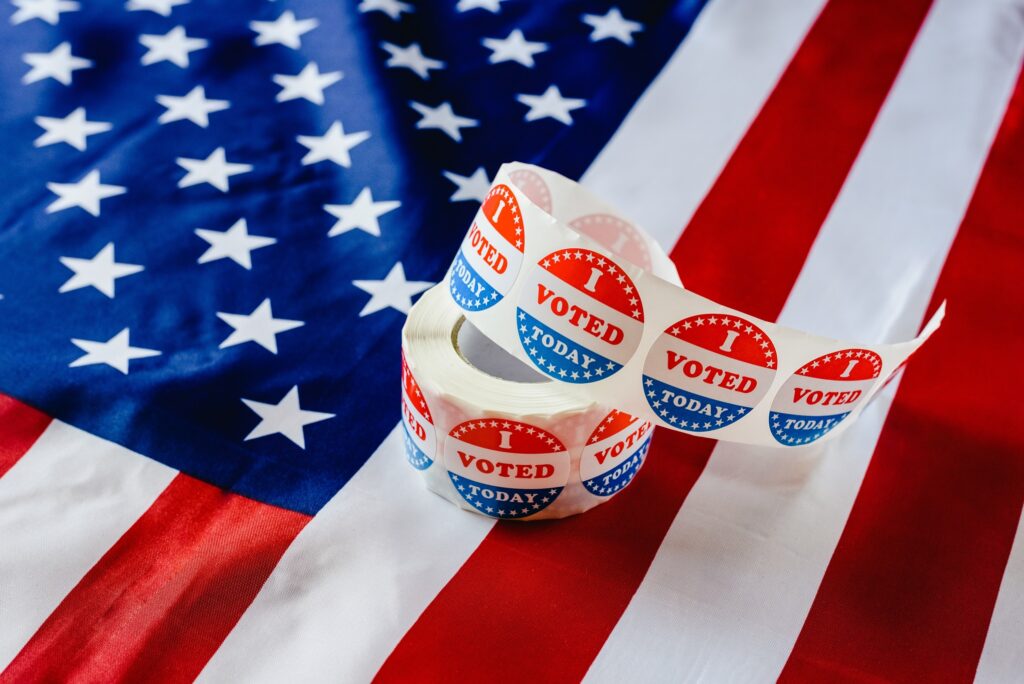The coming election
Since Ohio makes the news on a regular basis in any election year expected to be a close contest for the presidency, everywhere I go people are asking me who we Buckeyes are going to anoint. I can’t make a justifiable calculation but my hometown paper, the Columbus Dispatch reports today that with about 60 hours left until the counting begins, the president is up in the polls by two points in this particular “battleground” state.
Interestingly, the Dispatch pollsters find that their 1,501 voter sample tells them that Romney and Ryan are up 11 points in the group that intends to vote on election day, but down 15 points among those who say they have voted already. No wonder we had a prolonged legal fight about early voting that made it to the U.S. Supreme Court. And we have another partisan fight on the Ohio ballot about drawing legislative districts which provides an explanation taking up a full page and a half of the ballot. The Judicial Conference and the bar association oppose it, and the environmentalists say it is the key to sound public policy. Figure that out.
But for the wave of relief that the political ads and phone calls from Pat Boone, the U.S. Chamber and Michelle Obama will cease, the election results are likely to produce a feeling more like Groundhog Day than Thanksgiving. The fight over potentially ruinous taxes, irrational alternative energy subsidies, entitlement programs and social issues like abortion and who pays for contraceptive devices will proceed unabated.
Policy aside, we are clearly losing ground in one area. Scott Rasmussen reports that in his national telephone sampling 27% of Americans have negatively affected personal relationships with family members or friends from heated arguments over this election. Fifty-seven percent of the people in this country still think that the country is on the wrong track, and even more of us (60%) think that the federal government does not operate with the consent of the governed.
Will the election really decide whether we are going forward or backward?
Well, it might. Fall over the fiscal cliff? Let the tax rates go up? Voter fraud or voter suppression? Pour more taxpayer money into green companies where only the management will ever profit as they sell off the stock that we funded?
I’ve done some fact checking on two of the premier issues of the next four years – tax increases and energy subsidies. The top marginal individual income tax rate is the rate that not just millionaires but a clear majority of small businesses pay today, according to IRS data. Small businesses generate most of the new jobs.
A new tax on medical device makers, whether they make a profit or not, kicks in conveniently just after the election as a feature of the new federal health care law. Also a hefty 31% increase in the self-employment tax and a 3.8% surcharge on the income of the rest of small business owners who are not paying the self-employment tax because they are investors, not proprietors. As we all know now, those small businesses who employ over fifty workers but are unable to afford the new expensive health insurance for them will also owe Uncle Sam $2,000 annually per employee. These are facts.
Energy subsidies? Coal and gas subsidies for generating electricity are 44 cents per megawatt-hour. Nuclear subsidy runs around four times that at $1.59 per MWH. Subsidies for enhanced gas powered energy (i.e. wind) clocks in at $23.37 (53 times higher) and solar at $24.34 (55 times higher). No wonder emails released by the Congressional investigators last week show White House pressure to push these loans through despite Department of Energy hesitancy.
If you are lucky enough to live in a state where coal fires the electric power, you pay 7 to10 cents per kilowatt-hour. British families pay 14 cents; German families pay 32 cents; and the Danes pay 38 cents for the same amount of electricity. These are all facts, mostly from reputable government sources, according to the environmental experts at the Committee for a Constructive Tomorrow, founded by the Congress for Racial Equality.
One sign that people have less confidence in allowing representative democracy to plot a course for us is the wave of ballot referenda to secure or overturn a law and the increasing inclination to output these fights into the state constitution. The idea that a bumper sticker campaign over a ballot issue is a good way to ordain the rules of a society is antithetical to my view; and that goes double for pasting stuff into the constitution where mistakes are an order of magnitude more difficult to work around.
Voters will decide 174 ballot questions in 38 states this week, and about one in four of those are citizen-initiated. There are twelve referenda on the ballot, which is more than double the average number of the last eight election cycles. Many of them relate to social issues like gambling, abortion, same-sex marriage and marijuana use, but two additional states’ teachers unions are trying to overturn laws passed by their states which reform teacher labor laws. Five more states are considering a state constitutional prohibition against the individual mandate for health insurance mandated by the new federal law.
As I pointed out last week, Michigan could face additional, potentially catastrophic economic trouble if they either lock union benefits or even more aggressive alternative energy mandates into their constitution. Raising the current standard for a renewable energy portfolio from 10% to 25% into the state constitution is a huge risk in a real world where 14,000 turbines have already been abandoned in this country, according to one account, and wind generates less than 3% of our energy despite tens of billions invested. Although 29 states have renewable mandates, Michigan would be the first to secure this goal for electrical generation into the state constitution.
The current administration is winding down the war on terror and replacing it with domestic jihads on small businesses, coal and oil producers, extraordinarily successful people and even children, because of the interest on the debt that will be taken out of their future paychecks.
We will probably live through the election no matter who is elected. The irony is that the increasingly aggressive movement on all fronts to gain or preserve the authority of government does not seem to carry with it a corresponding willingness to attack the real challenges of the first part of the 21st century. Perhaps communication is the solution, as the campaigns seem to believe, but I suspect that Bill Clinton was right. “Arithmetic” he said, should provide us the answers.






